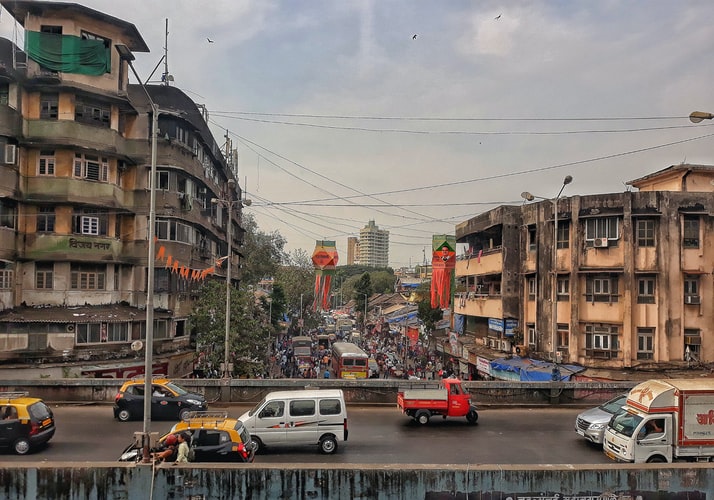Mumbai is oft described with superlatives like “the city that never sleeps” or “the city of dreams”. I grew up in this Mumbai – oblivious to its striking deficiencies, focused only on the positives.
I would pass by a large slum area everyday on my way to school, thinking how only this city can fulfil the dreams and aspirations of migrants. However, after recently finishing college in Kolkata, I returned to Mumbai and noticed things I was earlier, perhaps wilfully, blind to.
Of CST and Cuffe Parade
In the midst of this pandemic, I was on my way to Colaba looking for medicines. The drive from my house to Colaba passes through the Chhatrapati Shivaji Maharaj train station. And as I drove past the station, I could see lines and lines of people, all of them being rounded up by the police to stand in an orderly fashion, waiting to board trains that would take them home.
Squatting on their haunches on the footpath, wearing makeshift masks, I saw families confused and scared. The men, smoking their bidis, looked deep in conversation, while the women gathered up the children and kept a watchful eye over the luggage.
As I drove on, a mere five maybe ten minutes away from this scene, I entered the most breathtaking part of Mumbai. Stunning British architecture, widely paved roads, a flowing water fountain and surprisingly enough, people. In pairs or little groups, dressed in tracksuits and running gear with flashy brands indicative of obscene amounts of wealth clearly visible, all out on their evening walks.
Also read: The Siren Sleeps Now: The Dulling of Mumbai’s Magic
Not wearing any protective equipment but carrying branded water bottles, washcloths, smart watches and portable earphones – a few of the individuals got into an argument with a policeman who seemed intent on maintaining the curfew currently in place. They didn’t seem to bother, waving him away with a cursory shake of their hands and marched on as if the pavement they walked on belonged to them.
After purchasing the medicines, I passed by the train station on my way back. Waiting at the traffic signal, I witnessed a peculiar situation, a small van(?), with a container of liquid and a circular device spraying disinfectant on the groups of migrants waiting to enter the station and not a complaint or word from them.
Of striking inequalities and labour laws
Most of the workers employed in Mumbai – and not just the labourers but even those who help you find restrooms in the malls you and I so like to visit – are employed on a contractual basis and not as permanent employees. Their employment is regulated by the Contract Labour (Regulation and Abolition) Act, 1970 and while the Act regulates the conditions of work and payment of wages through a license system, it doesn’t provide for the same social security measures that are available to workers under the Factories Act, 1948.
In addition to not providing guaranteed employment or social security, the Act has been a disastrous failure in ensuring payment to these workers during the pandemic. Additionally, promised government subsidies and food packages have not been reaching migrant workers either. With limited access to capital and unable to support their families, the workers have had no option but to return home, and with resentment, rightfully so.
But the larger systemic flaw is the lack of adequate protection and social security measures put in place for workers. Since trade unions in Mumbai have good control over the political capital of Mumbai, the labour protections are primarily for the trade unions which mostly consist of locals who have secured permanent positions in the organisations. Hence, there is no political accountability to protect the rights of the migrant workers and no one seems to chase them either, for they don’t offer a prospective vote bank.
The second leg to the growth of this inequality is the rising rate of foreign investments which are based on absurdly high promised internal rates of return. This leads to foreign and domestic companies cutting costs whenever possible and incentivising those higher up the pyramid at the cost of these workers. In addition to this, various measures by state governments to suspend/relax labour laws to attract foreign investments point to the lax and even supportive attitude of the government to such actions of the companies.
Mumbai then, is not a city of opportunity, rather a city of striking inequality. For it is only in this city that towers can be built in the middle of slums, by the slum dwellers, but with little to no development or benefits afforded to them.
Lest we forget, the backbone of the Indian economy is the migrant worker, who is forced to travel great distances in search for employment at low wages just so that their families can be provided for.
Kushagr Bakshi has graduated from the West Bengal National University of Juridical Sciences and is a practising lawyer in Mumbai. You can find him @kushagrb on Instagram.
Featured image credit: Shreyas Kamble/Unsplash

